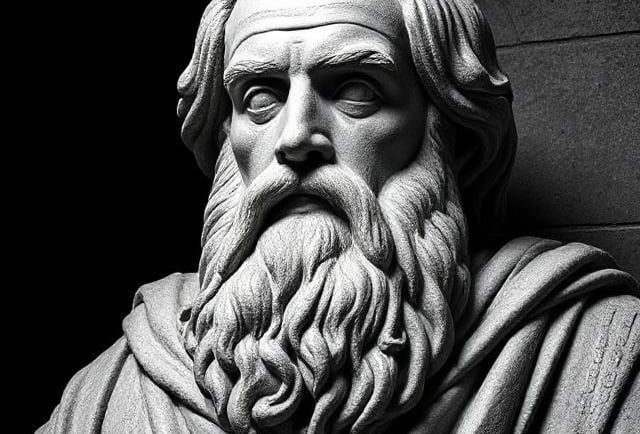UPSC Optional PSIR: Comment: "Plato's Communism is a supplementary machine to give effect to and reinforce that spirit which education is to create. (Nettleship)"
What if Plato’s communism wasn’t about economic equality but about moral integrity? Nettleship’s powerful insight reframes Plato’s radical ideas on common property, women, and education as instruments—not ideals—for preserving the philosophical spirit of a just polity. This blog explores how education and institutional design are deeply interwoven in The Republic, and how this ancient political theory still echoes in modern debates on civic education and institutional reform. 🧠 Perfect for GS2 & PSIR aspirants.
PSIR
7/27/20252 min read


🧠 Plato’s Vision: Education as the Soul of the Republic
At the heart of Plato’s Republic lies a simple but profound belief: lasting political justice begins with inner moral development.
Plato’s educational framework isn’t just about learning—it’s a transformative journey designed to cultivate philosopher-kings capable of leading society with wisdom.
📚 Key Elements of Platonic Education:
🧪 Rigorous testing to identify potential guardians
🔄 Progressive curriculum—from physical training to dialectical reasoning
🧘 Moral conditioning to instill virtues like justice, temperance, and courage
🔭 Philosophical training to access the Form of the Good
The goal? To shape a “philosophical nature”—individuals who love truth and are equipped to rule justly.
🏛️ Plato’s Communism: Not the Goal, but the Guardian
Nettleship’s analysis powerfully reframes Plato’s communism—shared property, wives, and children—as a "supplementary machine". That is, it's not the end goal, but a supportive institutional device that protects the philosophical integrity developed through education.
🔐 Functions of Communism in the Guardian Class:
Removes private interests and distractions from the common good
Prevents nepotism and the rise of factional politics
Builds a shared identity among rulers
Safeguards the philosophical temperament from corruption
💬 C.D.C. Reeve emphasizes that Plato understood a key truth: Virtue isn’t self-sustaining—it needs institutional scaffolding.
🔄 Education + Structure: A Self-Reinforcing Cycle
Plato’s genius lies in integrating education and institutional design to reinforce each other.
🔗 Key Aspects of This Integration:
Education comes first, laying the ethical foundation before political power is given
Institutions like communism reinforce educational values in daily life
Only guardians (who have undergone rigorous moral training) live under communist arrangements
Each class receives the kind of education suited to its role—producers, auxiliaries, rulers
💡 Ernest Barker noted that Plato created a “self-sustaining system,” where well-educated individuals preserve institutions that, in turn, protect the very values they were taught.
🌍 Contemporary Echoes: Education & Institutional Design Today
Modern democracies continue to reflect Plato’s insight: you can’t build strong institutions without morally informed citizens.
🔧 Modern Parallels:
Civic education to promote democratic values
Public service training to build ethical bureaucracies
School reforms to reduce inequality and increase mobility
Global development programs linking education to governance
📘 John Rawls, in his Theory of Justice, emphasizes how educational institutions must reinforce the values generated by rational deliberation in the “original position.”
⚠️ Critique: Is Plato’s Education System Totalitarian?
Not everyone sees this integration positively.
👎 Karl Popper accused Plato of:
Creating a closed society that suppresses dissent
Using education as indoctrination
Promoting a system where rulers decide what's true and citizens must obey
⚖️ Yet, this critique may overlook the ethical intentions behind Plato’s vision—especially when seen through Nettleship’s interpretation.
🧭 Conclusion: What Nettleship Gets Right
Nettleship offers a nuanced reading:
Plato’s communism isn’t an economic ideal—it’s an institutional shield for a fragile philosophical idealism.
By understanding education as the engine and communism as the guardrail, Plato creates a model of moral-political synergy—a lesson still relevant today.
✅ For UPSC aspirants, this highlights a timeless truth in political theory:
Transforming society means transforming souls—and then building institutions that help them stay transformed.
📌 Quick Takeaways (Revision Nuggets):
📖 Plato’s education = moral transformation through structured learning
🛡️ Communism = institutional reinforcement, not ideological end
🔁 Mutual reinforcement = core design of Republic
🎯 Nettleship: Plato's communism is a tool to protect philosophy
🧠 Modern parallel: Rawls, civic education, institutional reform
❗ Popper’s critique: Plato as a proto-totalitarian thinker